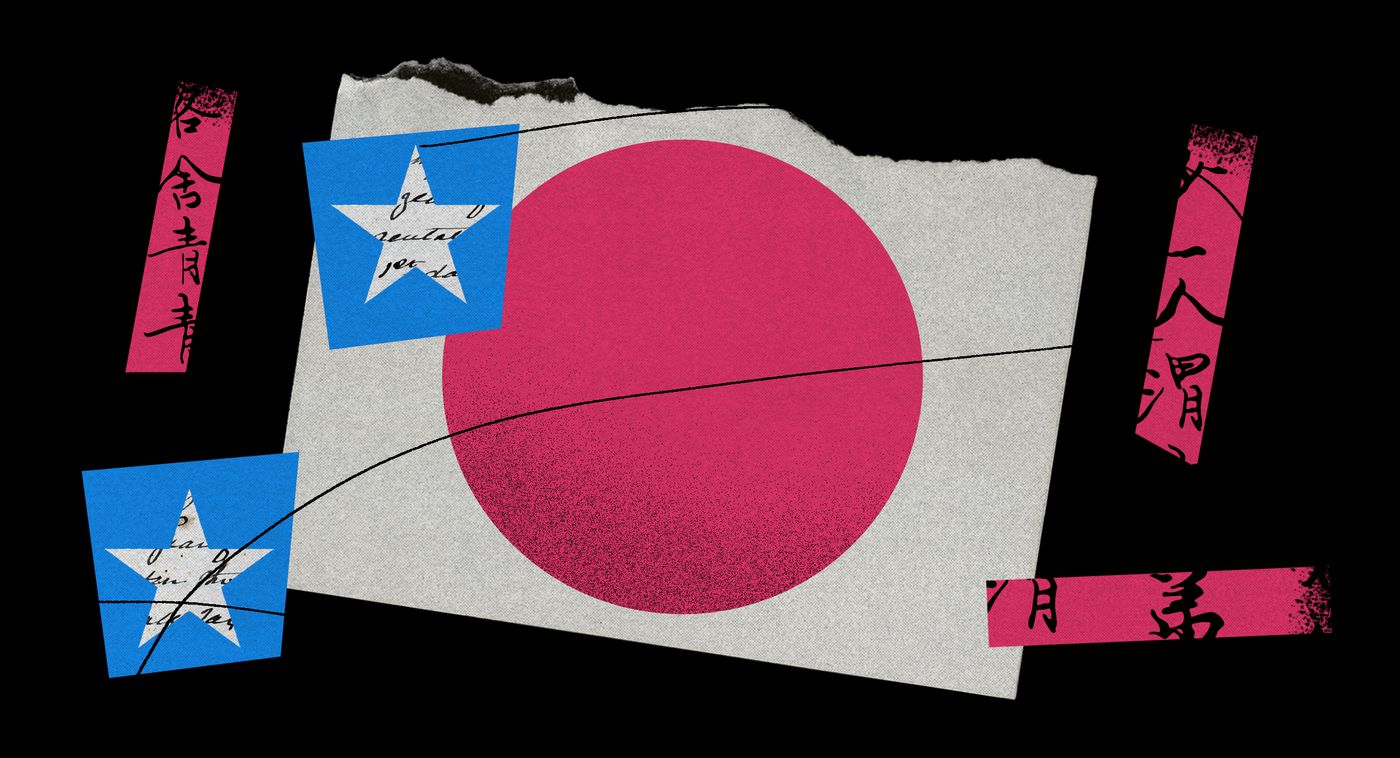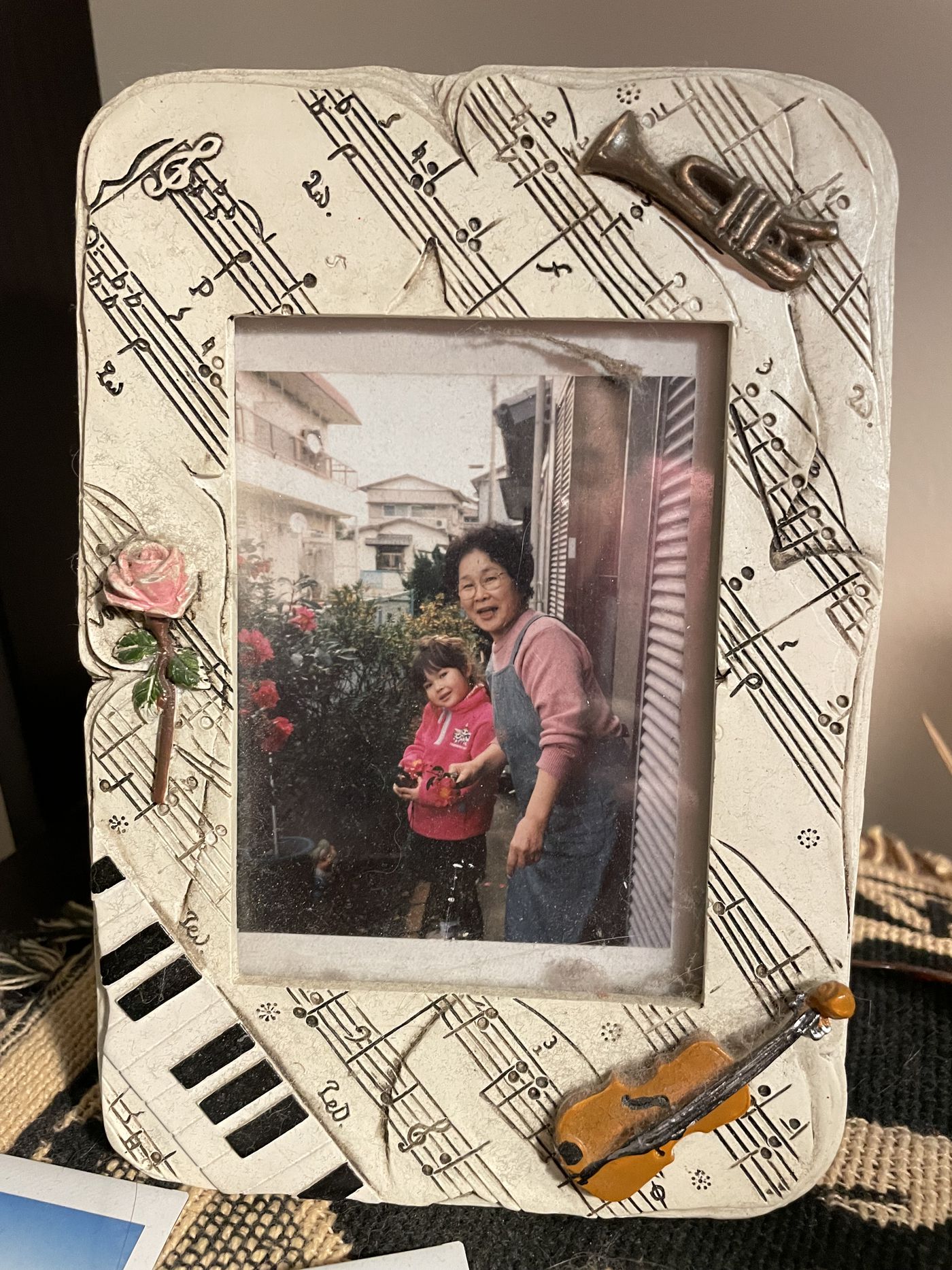When I left home for college, I lost touch with my Japanese heritage. As an adult, I’m reclaiming it.
After years of feeling like a minority within a minority, I realized I didn’t want to live my life detached from my culture
Mica Soellner

When I was younger, I never thought much about my identity.
Growing up in the Midwest suburbs — where many people who were born there spend their whole lives — I understood my roots were unique. But I didn’t realize until much later how different my life experience was from others.
I was born in Nagoya, Japan, which sits about an hour and a half from Tokyo by bullet train.
My American father met my Japanese mother while he was teaching English there, and they moved me to the United States when I was 2 to be closer to my dad’s side of the family. Although I don’t remember the early years of my life spent in Japan, I was acutely aware of the cultural practices I took part in throughout my youth that contrasted from my American friends.
Rather than cutting my childhood flavor palette on grilled cheese sandwiches and chicken nuggets, I indulged in norimaki rolls and a side of white rice and miso soup at almost every dinner meal. By the time I was 6, I had a craving for octopus and shark fin soup — two seafood specialties many adults, even, are hesitant to try.
I was also raised with two mother tongues — English, of course, but Japanese was never a second language to me. In my household, I’d often speak English with my dad, who is of German descent, and Japanese with my native mother. Sometimes, the two languages would be combined to create a gibberish version of Japanese-English.
Every few years, I’d embark with my parents back to the motherland, where I’d see family friends and visit my grandmother, whom we affectionately refer to as Baba.
Leaving Japan was always difficult, and the only comfort that could be provided was the hope that I would one day return.
For 18 years, that was my reality. I was a part of two worlds that had collided naturally into one.
When I went away for college in Missouri, I placed a framed photo of Baba and me on a shelf above my dorm room desk. That picture was to serve as a reminder of where I came from.

But, as I honed my newfound independence in my unfamiliar surroundings, I missed the simple reminders of where I came from: eating traditional Japanese cuisine, speaking my native tongue. Being Japanese in the Midwest can feel like being a minority within a minority when you don’t live somewhere like Hawaii or California.
And I never desired a community connection to Japan until I no longer had one.
Even just talking to someone who understood or appreciated Japanese culture was hard to find. Most people would instead ask me questions, sometimes out of curiosity and occasionally out of ignorance.
The worst was when overly interested people would try to one-up me on their knowledge of Japan or fetishize me as some exotic creature.
In my four years at college, I only met one person whom I shared a sense of community with. Minami was a girl from Tokyo who was studying business in America. I knew her briefly the spring of my freshman year, but she went back home by summer.
When I graduated, I moved to a small town in Wisconsin for a newspaper job, which left me even more culturally isolated, especially in a place where I didn’t know anybody. Similar to those where I’d grown up, the town’s residents were mostly loyal natives, who thought even Missouri, just a couple states down, was worlds away.
And the older I became and deeper in my job I got, the fewer opportunities I had to visit Japan; it wasn’t as easy as planning a trip during summer vacation while I was in school. My grandmother was getting older, my parents were getting older, and I was settling into adulthood. Life always seemed to get in the way.
When I was 24 and still living in northeast Wisconsin, I realized it had been about seven years since I went to Japan and last saw Baba. That recognition rang strong when I started to realize many close friends knew so little about my background.
“You can speak Japanese? I never knew that,” one friend of six years told me one day when it came up.
Another friend I became close with in college was shocked to find out I wasn’t born in the United States.
One woman I met tried to box me into a cultural mold that fit her comprehension of what defines someone of mixed race. She told me she didn’t think I was really Japanese because I “acted White.”
It was comments like those that made me not only want to reconnect with my roots, but reclaim my heritage.
When I moved to Washington, D.C., I felt it was an opportunity beyond career advancement or a change of scenery. I was headed to a world capital and one of the most international cities in the country.
Given the newfound privilege of living in a global city, I decided to seek out a Japanese community. A friend of mine connected me to his Japanese colleague who had just moved to D.C. from San Francisco. We met for coffee one day and talked about the things we miss most about Japan, but also shared the best local spots to get authentic meals and goods.
I remember hesitating for a second before asking him — “Can we speak Japanese? Just for a little bit.”
That five-minute conversation I had with an essential stranger was the first time I spoke my native language in a long time with someone other than my mom.
Over time, I was able to meet other people with Japanese ties, including a girl who was from Baba’s hometown of Hamamatsu. We reminisced about a lot — even if it was something as simple as asking her if she ever went to the convenience store in the Hogawa neighborhood. To her, the shop was something as common as a Walmart or Target here, but to me, I’d look to that convenience store as a marker to know I was just half a mile from Baba’s house.
I also learned to cook Japanese meals that reminded me of my childhood. When I was younger, my mom tried to teach me how to make dishes like gyudon — a hearty dish of rice, beef, onions and fried eggs — or okonomiyaki, which is like a savory fried pancake. As an uninterested teenager, I never took her up on the opportunity, but almost 10 years later, I finally did.
My mom would send me step-by-step virtual instructions and photos of everything I needed for the meals, and I would send her a picture of the finished dish — most of the time, to her approval. It may not have been the same as learning in person, but it still felt like she was right beside me, passing down traditions to the next generation.
I even attempted to tackle being able to read and write in Japanese — a skill I regret not having, even though I can speak fluently.
My re-engagement with my Japanese identity brought me a new understanding about the importance of protecting your heritage.
I feared the possibility of potentially having children one day who would never know that side of me — or them. And it broke my heart to think I could lose my ability to speak and comprehend Japanese someday because I no longer had exposure to the language.
Even though Japan will physically always be a part of me, I didn’t want to live my life detached from my culture.
Today, it’s been almost a decade since I’ve been back to Japan.
The last trip I had planned was just before the pandemic hit. While I don’t know for certainty when I will return to my homeland, I know it’ll always be there.
I still miss Japan — especially my grandmother — but reconnecting with that part of me makes those years feel like less time has passed.
The same photo I kept in my college dorm room of Baba and me now has a place on a shelf in my current bedroom. It was taken more than 20 years ago, but every now and then, it feels like it was yesterday. And after all these years of its special placement in various apartments, cities and states, it continues to serve the same purpose it always has.
It reminds me where I come from.
Mica Soellner is a reporter for the Washington Times.
